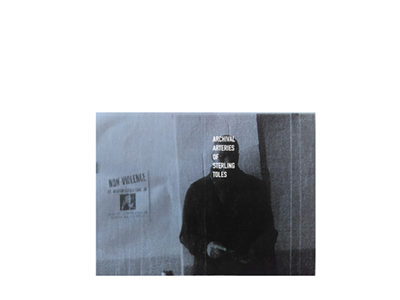"I worked hard to make an album that would spread across specific categories, and transcend them," Car Seat Headrest's singer-songwriter Will Toledo says on the phone. That album, this year's Teens of Denial, has gained the band major critical acclaim.
The four-piece band — originally formed as a solo project for Toledo — plays El Club this Wednesday, Sept. 21, with fellow Matador signee Lucy Dacus and our very own, beloved Stef Chura (whose debut full-length is coming imminently from Urinal Cake) in tow.
Toledo grew up in Williamsburg, Va. In 2010, Toledo began self-recording albums on his computer and releasing them on Bandcamp under the name Car Seat Headrest. The name references his choice to record vocals from the back seat of his car. He released 11 albums on Bandcamp in five years, notably 2011's Twin Fantasy, which contributed heavily to his growing fan base.
While he's stated in the past (even in album descriptions on Bandcamp) that he's not particularly happy with the quality of these early releases, Toledo still feels that DIY recording has major advantages.
"For me, the advantage of DIY is that no one's telling you what to do," he says, "and you can find your own way and develop your sound in a way that's unique to yourself."
In 2015, Car Seat Headrest signed with Matador Records, releasing Teens of Style that October. Intended as an introduction to the band, the album was comprised of new recordings of some of Toledo's early Bandcamp songs. The album earned Car Seat Headrest praise, with Rolling Stone and Stereogum each placing it on their top 50 for the year.
As Toledo has begun working more with studio-based recording, he's noted the advantages of that as well. "You do get a better sound for sure," he says. "I was maybe a little skeptical about studios before going in, but it really is more comfortable recording there than in a home studio environment. It allows you to focus more on giving a good performance, and that's obviously important if you want to have good records."
In the future, Toledo would like to combine both the DIY and studio processes.
This year, Car Seat Headrest released Teens of Denial, the first Matador release comprised of new material, which gained attention before it was even released due to legal troubles. Toledo's use of lyrics from the Cars' "Just What I Needed" on "Just What I Needed/Not Just What I Needed" was believed to be cleared by the publisher. But permission was denied by the Cars' Ric Ocasek a week before it was released, resulting in a massive recall that pushed the physical release from May to July.
Despite that incident making headlines, Toledo doesn't think it ever became the main focus: "Once the record came out, people started focusing on the music."
Toledo says that the praise the album has received is partly due to its themes of teenage depression and isolation, adding that the songs, "are kind of about broad subjects that can be accessed by many people." With regards to the issue of his own depression, Toledo feels music has brought him to a better place. "I don't know what I would do if I didn't have an artistic outlet," he says.
Teens of Denial was envisioned as a concept album, something that Toledo says has been somewhat overlooked at a time when anyone can pick out favorites from an album. His intent was to make an album that could be enjoyed by those who just wanted to hear good songs as well as people invested in the concept.
For the conceptual feel of Teens of Denial, Toledo turned to Nirvana.
"Part of my concept for the album was making a sort of archetypal rock record, and along with older records from the '60s, I think that Nirvana was a major influence in shaping the scene of the album," he says.
At the same time, Toledo had trouble coming up with antecedents for the album's concept, which changed near the end of the writing and recording process.
"I was actually listening a lot to Kendrick Lamar's To Pimp a Butterfly when I was finishing writing it," he says. "That's one of the best concept records ever — a good example of how to do a concept record in the 21st century."
Beyond the conceptual aspect, Toledo's songwriting is notable for combining lo-fi pop melodies with unusual song structures and extended song lengths. The average song length on Teens of Denial is almost 6 minutes, the longest track being the 11-minute "The Ballad of the Costa Concordia." Yet, according to Toledo, that wasn't his intent.
"I was trying to do shorter songs this time around." While he succeeded with songs like "Fill in the Blank" and "1937 State Park," each around 4 minutes long, the lyrical structure of the songs and his effort to make every line meaningful led to song lengths increasing elsewhere.
Regarding the album's sound, Toledo says, "Growing up, I always kind of wanted to make a big rock record and I think that this can put that idea to rest." To that end, he'd like to work more with synths, drum machines, and samples, the latter of which he's avoided in the past because, ironically, he thought he'd get in less legal trouble if he just played other people's songs himself.
Car Seat Headrest performs at El Club on Wednesday, Sept. 21; Doors at 8 p.m.; 4114 W. Vernor Hwy., Detroit; elclubdetroit.com; Tickets $15 in advance, $17 at the door.






